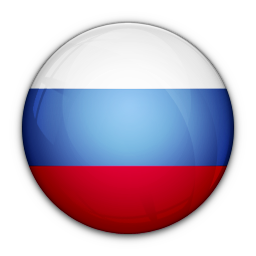
Russian Federation
Regional group:Eastern European Group (EEG)
Council member:
|
|
|||||||||||||||
| National Mechanisms for Implementation, Reporting, and Follow-up (NMIRF): Unknown | ||||||||||||||||

|
|
|||||||||||||||
| National Mechanisms for Implementation, Reporting, and Follow-up (NMIRF): Unknown | ||||||||||||||||
Business and human rights, Promoting human rights through sport and the Olympic ideal, Methods of work of the Consultative Group of the Human Rights Council, and Strengthening cooperation and technical assistance in the field of human rights in the Bolivarian Republic of Venezuela.
During HRC general discussions, panel debates and interactive dialogues with the Special Procedures, during the past three years, either as an HRC member or not, the State has joined:
Regional
group statements
Subregional
group statements
Political group
statements
Cross-regional
group statements
Other joint
statements
Overall, as a HRC member, has participated in more than 10% of panel discussions, general debates and interactive dialogues.
 Cooperation with international human rights system
Cooperation with international human rights systemLongest visit request not (yet) accepted by the State >
SR on arbitrary executions, 2000
CAT
ICCPR
CED
CEDAW
CERD
ICESCR
CRC
CRPD
 Most overdue report
Most overdue report
Ratified
NPM established
 Fulfilment of past voluntary pledges & commitments
Fulfilment of past voluntary pledges & commitments The Russian Federation presented voluntary pledges and commitments in support of its candidature for membership for the period 2021-2023 on 29 January 2020. In the document, the Russian Federation pledged, inter alia, to: Ensure respect for human rights and freedoms throughout the world; Counter attempts to use human rights concepts as an instrument of political pressure and interference in the internal affairs of States; Ensure the protection of human rights and freedoms under international law and in compliance, by States, with their international human rights obligations; Develop cultural and humanitarian ties between peoples at the inter-State level; Strongly oppose any manifestations of racism, racial discrimination, xenophobia, neo-Nazism, aggressive nationalism, anti-Semitism, and religious and ethnic intolerance; Engage with civil society institutions in international issues; Develop international, cultural and humanitarian cooperation to, inter alia, achieve mutual understanding and respect among peoples, with a special focus on inter-religious dialogue; Enhance cooperation with international and non-governmental human rights organisations; Focus on individual responsibility for human rights violations, especially those related to religion-based discrimination; Strengthen moral principles in the human rights dialogue and eradicate double standards; Transform the Council into an efficient and effective tool for promoting and protecting human rights throughout the world, based on the principles of universality, non-selectivity, objectivity, equal treatment of all, and respect for cultural and civilizational diversity.
An analysis of the steps taken by the Russian Federation to fulfil its international pledges shows that Russia does not engage frequently in Council debates, participating only in 13% of these meetings individually and joining only a total of 38 joint statements in three years. Russia has responded to almost 75% of the communications received from Special Procedures and facilitated 52% of all visits requests it received. Russia has submitted most of its periodic reports to the Treaty Bodies on time. On 7 April 2022, the General Assembly passed a resolution suspending the Russian Federation from the Council for gross and systematic violations of human rights (the Russian Federation resigned from its position as a Council member on the same day).